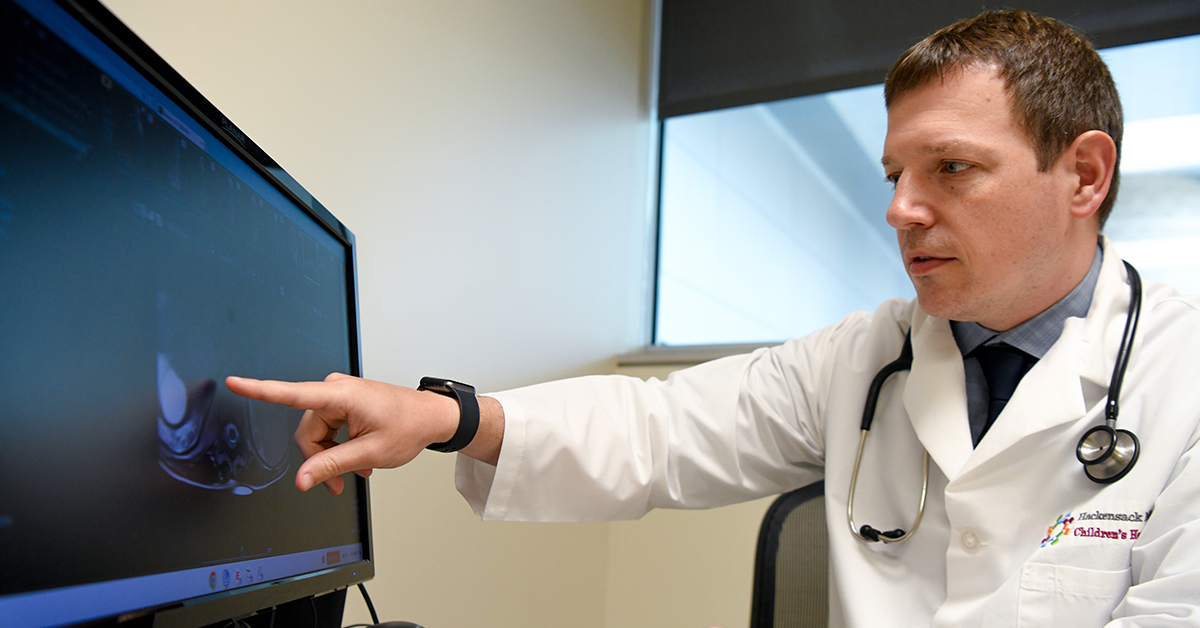Pilot Study Tests Safety of Genomic-Guided Induction Therapy for High-Risk Neuroblastoma
Study also tests addition of maintenance drug to help prevent relapse

Derek Hanson, M.D., chief of Pediatric Neuro-Oncology at Joseph M. Sanzari Children’s Hospital, has participated in a multicenter pilot study to test the safety and feasibility of adding a genomic based targeted agent to standard induction therapy for treatment of high-risk neuroblastoma. The study also tested the safety and feasibility of adding difluoromethylornithine maintenance (DFMO) to immunotherapy.
“Despite aggressive multimodal therapies, survival for patients with high-risk neuroblastoma remains poor,” said Dr. Hanson, who co-authored the study. “This pilot study was an important step allowing us to target the treatment of each patient’s tumor with a specially selected agent based on their specific tumor’s genomic characteristics. The addition of DFMO as a maintenance therapy is being tested as an early relapse prevention strategy.”
The study was performed across 15 sites, including Joseph M. Sanzari Children’s Hospital at Hackensack University Medical Center. Neuroblastoma accounts for 7% to 10% of childhood cancer diagnoses but 15% of all pediatric cancer deaths in the United States, and risk of relapse after treatment is high.
Now that the addition of the targeted agent and DFMO has been well-tolerated and has resulted in no unexpected adverse events, the treatment regimen has been expanded to a Phase II trial to evaluate its efficacy.
Learn more about our advancements in pediatric oncology at Hackensack Meridian Children’s Health.
